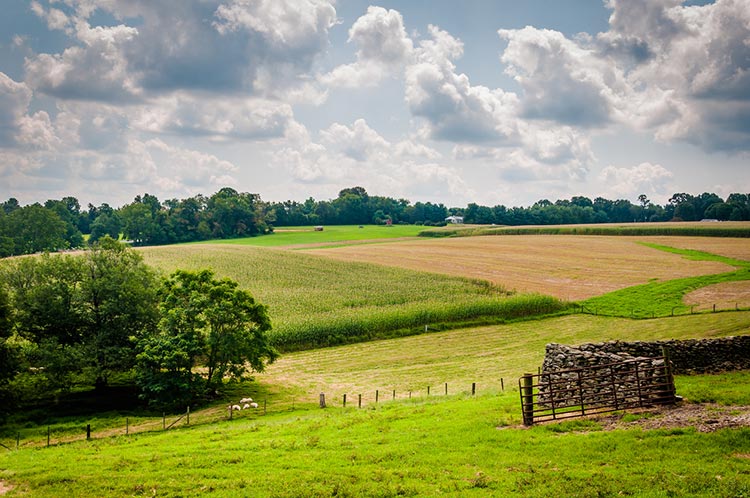
We’ve written plenty of articles about capital gains and capital gains taxes on the sale of real estate property. But one question that comes up frequently is whether sales of other property types can trigger capital gains taxes. When it comes to farming, for example, does a farmer who sells livestock have to pay taxes on the gain from that sale?
The answer depends on the purpose of that livestock. In some cases, the sale of livestock might be subject to capital gains taxes. In other cases, such a sale might fall under the category of ordinary income taxation.
Making Money off Livestock
In some cases, livestock is considered inventory, or a product that is used for conducting business. And, just like any inventory that might be bought or sold, any profit (or loss) is treated as ordinary income and is taxed as such. The tax is calculated based on the owner’s particular tax bracket.
So when livestock is held for the specific purpose of being sold to a customer, the proceeds from that sale are considered revenue (or income). Another way to look at it is that this type of sale could be considered a sale of inventory. A cattle broker selling cows for a profit would pay taxes on that profit – at the ordinary income tax rate.
Livestock and the Capital Asset
As is the case with certain assets, however, there are exceptions to the ordinary income tax treatment involved with to livestock. Livestock primarily held for draft, breeding, dairy, or sporting purposes are considered capital assets that are used in running a farm; it’s considered Section 1231 property, or “real or depreciable business property held for more than one year.”
So, it might make sense that selling these types of animals would qualify for capital gains tax treatment.
But there are exceptions here, too:
- The sale or exchange of livestock used for draft, breeding, dairy, or sport must be held for more than 12 months to be considered Section 1231 property.
- The sale or exchange of horses or cattle fitting this definition must be held for 24 months to be considered Section 1231 property.
- Chickens, turkeys, geese, emus, or other birds, which might be considered livestock, are NOT considered Section 1231 property.
What’s the Purpose?
While it might be assumed that a cow is a cow is a cow, that cow could be used for different purposes, depending on its owner’s business. Because of this, not all cows that are sold for profit will trigger capital gains taxes. Because of the complexity of farm accounting, it’s important to work with a tax professional who is familiar with the IRS rules and regulations to ensure proper reporting at tax time.
This material is for general information and educational purposes only. Information is based on data gathered from what we believe are reliable sources. It is not guaranteed as to accuracy, does not purport to be complete and is not intended to be used as a primary basis for investment decisions. It should also not be construed as advice meeting the particular investment needs of any investor.
Realized does not provide tax or legal advice. This material is not a substitute for seeking the advice of a qualified professional for your individual situation.


